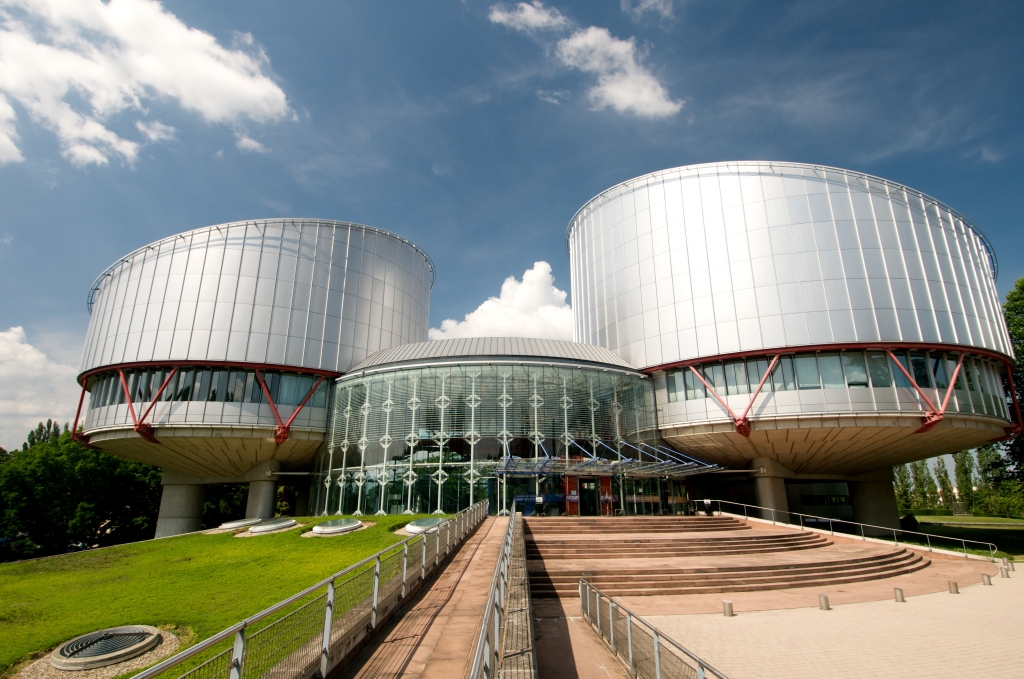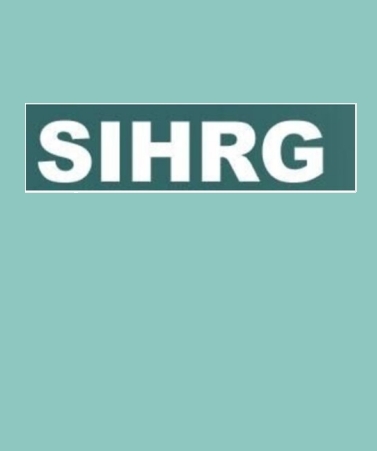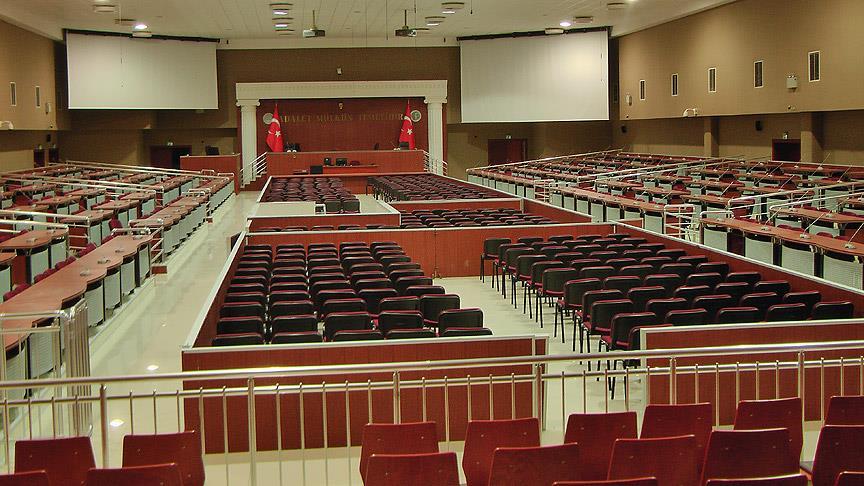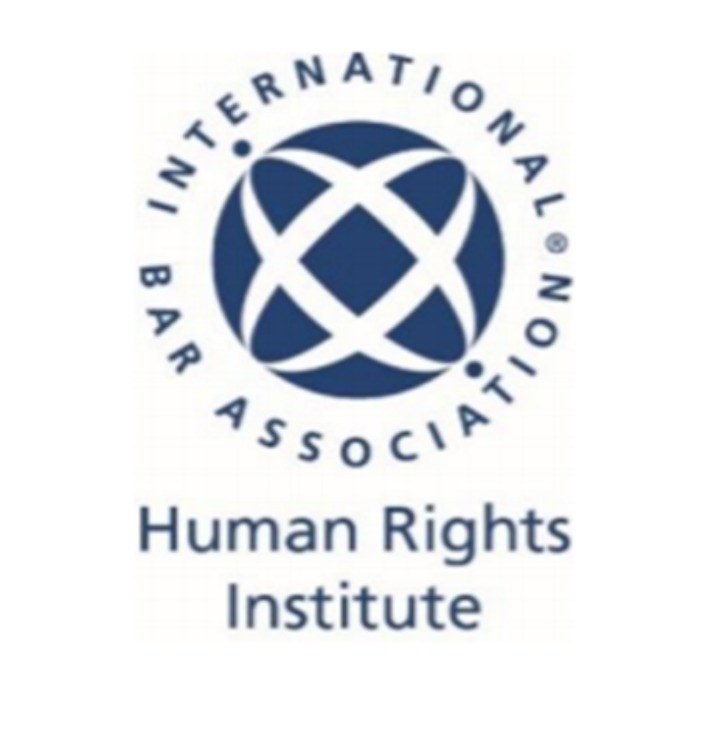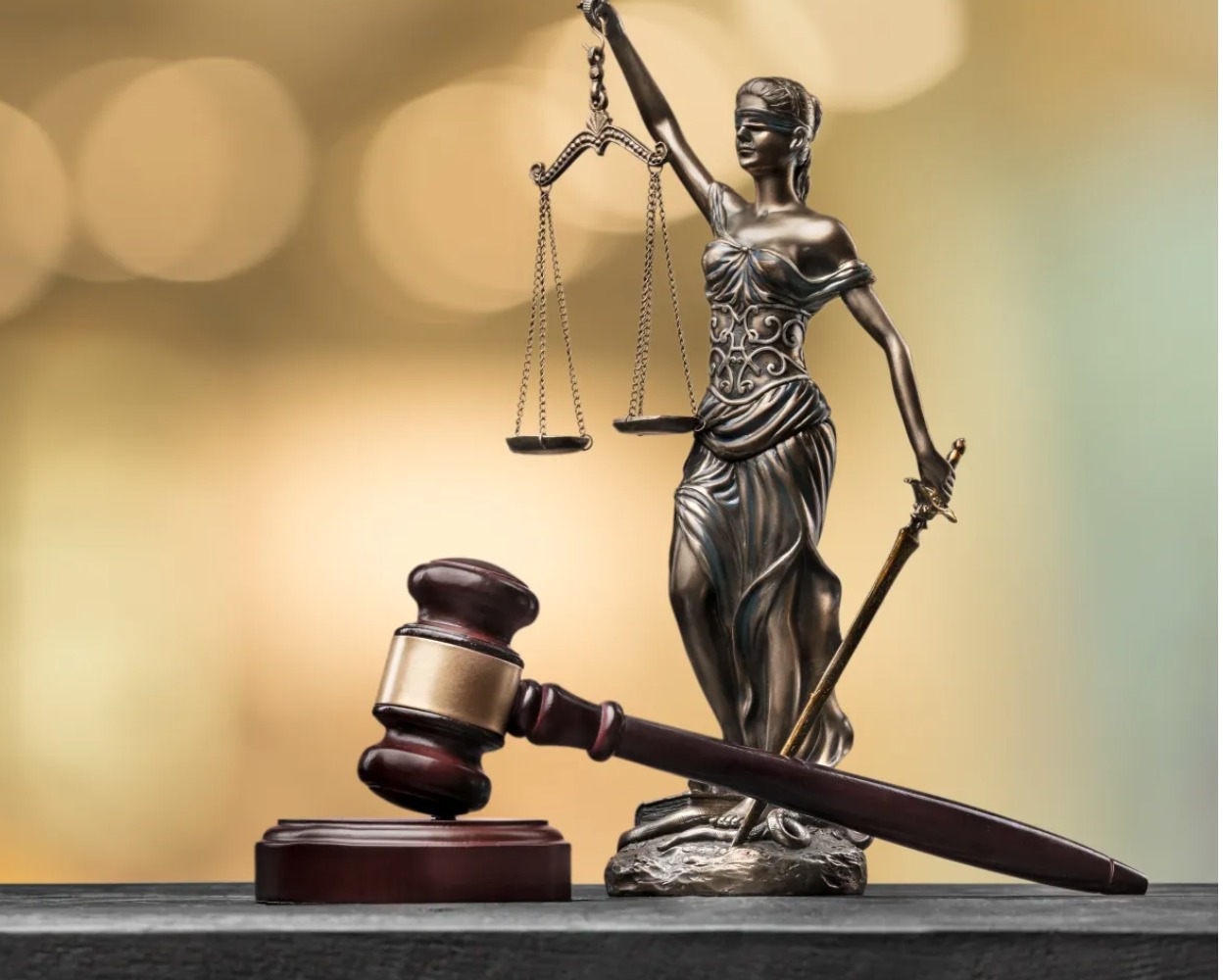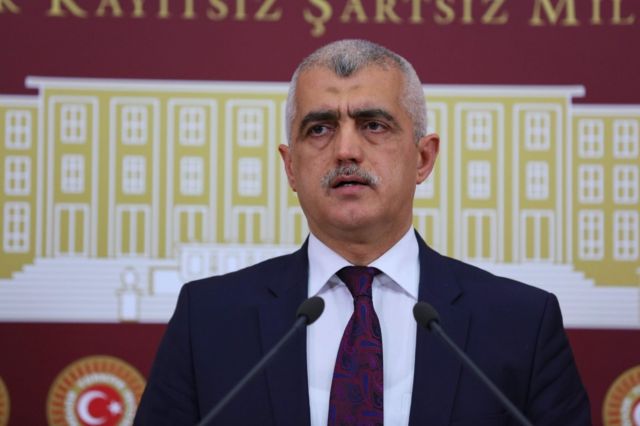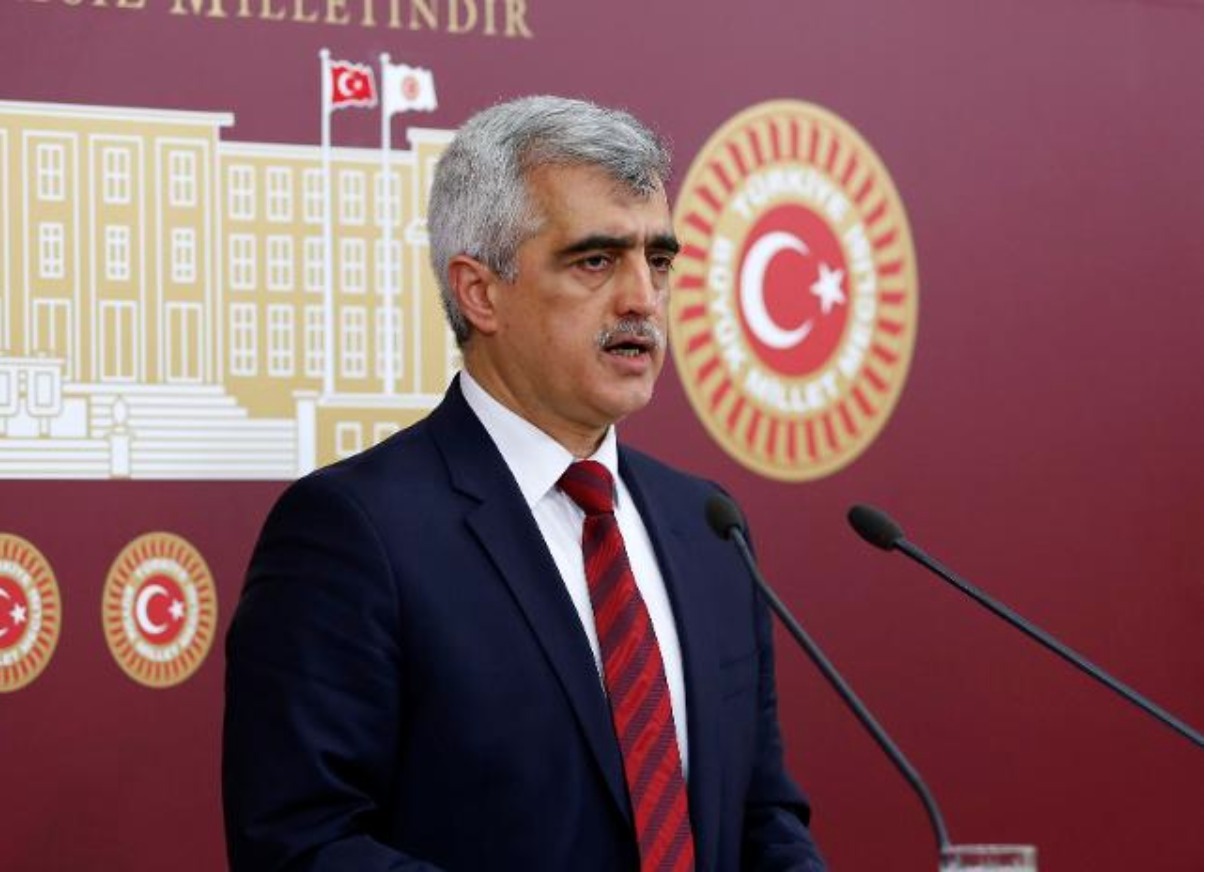On July 11, 2018, a massive police operation was launched against Adnan Oktar and his friends in the Technics & Science Research Foundation (TBAV). The operation was mostly based on the allegation that the group “established a criminal organization to commit crimes” as defined in the Turkish Criminal Code, article 220.
Even though the defendants are charged with the abovementioned offense, it is actually thoughts and beliefs that are being tried in this case. As a matter of fact, Mr. Oktar’s and his friends’ devout but also libertarian, modern stance, the way they advocate freedom of thought and faith, that they defend the rights of the secular segment too, that they make friends with the members of other faiths have in time drawn reaction from orthodox groups who have a profound influence on politicians in Turkey. Disapproving the stance of Mr. Oktar and his friends, this orthodox group initiated a black propaganda. Accompanied by a section of media, the propaganda was spread and turned into an immense smear campaign, and this group of friends has literally been marginalized. Numerous tangible evidences are revealing the unreasonable, unconscientious and illegal nature of the allegations, which violate ECHR article 9 ‘Freedom of thought, conscience and religion’, ECHR article 10 ‘Freedom of expression’, ECHR article 11 ‘Freedom of assembly and association’, ECHR article 8 ‘Right to respect for private and family life’, ECHR article 12 ‘Right to marry’, and Protocol No. 4 to the Convention, article 2 ‘Freedom of movement’.
What has been experienced since the beginning of the ongoing trials have violated ECHR article 3 ‘Prohibition of torture’, ECHR article 5 ‘Right to liberty and security’, and ECHR article 6 ‘Right to a fair trial’. Let us examine all these violations in more detail:
- The defendants are a group of friends who share the same intellectual and cultural values. Knowing each other for a long time, they enjoy a close friendship and solidarity. They share a common worldview and desire to work for the benefit of humanity. Through the lawfully established non-governmental organizations and A9 TV, they voluntarily perform numerous cultural works. Their works, including hundreds of books, numerous articles, TV programs, thousands of conferences, seminars and exhibitions held in Turkey and abroad, scientific publications, documentaries, web sites, TV programs, events held by the foundations, have all been in the glare of the publicity for some 40 years. There has never been an intention to commit an offense in this gathering, which is entirely a union of hearts; nor has an offense ever been committed. In this context, the defendants’ ‘freedom of assembly and association’ (ECHR article 11) is violated.
- The group aims to show Islam’s modern face to the world, and that Islam can be lived by well-educated, sophisticated and modern people too. They advocate freedoms and peace, and regard arts and women’s rights highly. In this context, the group’s understanding is sometimes considered to be against the orthodox understanding of Islam. Being tried because of the way they live Islam, their ‘freedom of thought, conscience and religion’ (ECHR article 9) and ‘freedom of expression’ (ECHR article 10) are violated.
- In violation of the “natural judge” principle, a panel of judges was appointed specially for this trial. After the court to which the file would be dispatched was determined, a special panel of judges was appointed to the court. All of their other pending cases were removed and their sole focus was to hear this case and Osman Kavala/Gezi Park case. As the Gezi Park case was over in February 2020, the specially appointed panel’s only duty has been to try Adnan Oktar and his friends. Such has been seen only in a few political cases in history. ECHR article 6 ‘Right to a fair trial’, ECHR article 14 and Universal Declaration of Human Rights article 7 ‘Prohibition of discrimination’ were violated.
- The defendants were subjected to “faith-based discrimination”. In the arrest warrant issued by the Istanbul 4th Criminal Judgeship of Peace (dated 19.07.2018 and with the query number 2018/566), unacceptable insults at the faiths and lifestyles of the suspects (such as “pervert” etc.) were used as a pretext for arrest. The same kind of insults were also present in the indictment and the Prosecutor’s opinion on the merits of the case (referring to the defendants as “property” and “slave” etc.). ECHR article 14 ‘Prohibition of Discrimination’, ECHR article 9 ‘Freedom of thought, conscience and religion’ and ECHR article 10 ‘Freedom of expression’ were violated.
- The decisions to arrest were not made on an individual basis, but were made indiscriminately. The arrests were made without proper reasoning, through repetition of cliché words, using the pretexts of ‘doubt of fleeing’ and ‘possibility of destroying the evidence’, however, these pretexts were accepted through abstract assumptions and despite lack of any proof. Similarly, detentions were extended without rationale, through the same copied collective decisions. Mass detention decisions without proper justification violated ECHR article 6 ‘Right to a fair trial – Reasons for judgments and decisions’ and ECHR article 5 ‘Right to liberty and security’.
- The court did not explain why release on bail would be insufficient, as an alternative to detention. ECHR article 6 ‘Right to a fair trial’ and Reasons for judgments and decisions’ were violated.
- All defendants’ companies and shares have been seized, and trustees have been appointed. Seizure of the companies has been carried out collectively, without individual and justified orders for each. All earnings and bank accounts of the suspects have been blocked out, including the payroll accounts of civil servants, without any tangible evidence that the income is earned by committing a crime. Even though the Turkish legal system prohibits mass confiscation, the court decided that all the assets of all the defendants be confiscated collectively, in violation of the domestic law and international conventions. In fact, this decision of the court has been appealed even by the Prosecutor. Defendants’ right to ‘protection of property’ (Protocol No. 1 to Convention, article 1) is violated.
- Through a mass trial of more than 200 defendants, pressure and threats were exerted on defendants. ECHR article 6 ‘Right to a fair trial’ was violated.
- During the police operation that took place on July 11, 2018, the police officers used unnecessary force despite the clear lack of any resistance on the part of the suspects and used methods like handcuffing from behind, forcing on the floor, stepping on the head, and thus violated the Article 3 of the ECHR, which is about ‘prohibition of torture’.
- In violation of procedures, documents that only judges and prosecutors are entitled to examine were examined by the police. ECHR article 6 ‘Right to a fair trial’ was violated.
- The police contacted some individuals from among the group and created artificial complainants threatening them “you will either press charges and be free, or become suspects and go to jail”, thus coercing them into making false accusations. Some of them reported this treatment to the court and other authorities. ECHR article 6 ‘Right to a fair trial’ and ECHR article 3 ‘prohibition of torture’ were violated.
- Searches carried out during and after the police operation were not done according to the specified rules, searches were made in some addresses, extensions, and cars for which there was no search warrant, and seizure reports were not duly prepared. Defendants’ right to ‘protection of property’ (Protocol No. 1 to Convention, article 1) was violated.
- The people who were taken into custody were kept in small chambers in Istanbul Police Station (on Vatan Street). For example, four people were put in chambers designed for two and in chambers which are just a little bigger, more than ten people were put together. This was another violation of Article 3 of the ECHR, which is about the ‘prohibition of torture’.
- During custody, the suspects were denied their most basic rights; they were given very little food and were allowed to visit the WCs once in every eight hours and only for a few minutes. During prayer times, they weren’t allowed to take ablution. In July heat, they were shut down underground and the ventilation was deliberately shut off and except for a few people, most of the suspects were not allowed to shower for eight days. ECHR article 3 ‘prohibition of torture’ was violated.
- The suspects weren’t given any information about what they were being accused of. ‘Sexual assault’ charge was deliberately hidden from suspects. ECHR article 5 ‘Right to liberty and security’, and article 6/3 ‘Right to a fair trial and right to be informed about the accusations’, were violated.
- During the custody, lawyers were allowed to give counsel to only one suspect. Due to this limitation of lawyers, many of the suspects were not able to benefit from the lawyers they chose. ECHR article 6/3 ‘Right to a fair trial and right to defend himself through legal assistance of his own choosing’ were violated.
- Lawyers who wanted to see their clients during the custody, were unnecessarily made to wait ten to twelve hours, and even after that, they couldn’t see them. ECHR article 6 ‘Right to a fair trial’ was violated.
- The maximum custody period allowed by the laws was exceeded by one day, and suspects were brought before the judge only after eight days of custody. ECHR article 5 ‘Right to liberty and security’ was violated.
- During the custody, while the suspects were being taken to health control every day, they were plainly displayed to the press, which was allowed to make baseless news about the suspects. ECHR article 6/2 ‘Right to a fair trial’ and ‘the principle of presumption of innocence’ was violated.
- During the investigation process, fake documents and misleading information were constantly leaked to the press, leading to perception operation and black propaganda against Adnan Oktar and his friends. Manipulating the public through fake news, it was aimed to gain public consent for the ongoing violations of the law. ECHR article 6/2 ‘Right to a fair trial’ and ‘the principle of presumption of innocence’ was violated.
- Although the villa in Kandilli –which is wrongly shown as the headquarters of the alleged criminal organization– was officially sealed and closed off, some journalists with opposing views to the group’s lifestyle were allowed to freely wander inside the residences and handle the personal belongings of the suspects. Irrelevant news displaying suspects’ underclothes and private items were allowed to be made, which were interfering in private life rather than serving the public interest. ‘Presumption of innocence’ and ‘reality’ articles of the “Rules to be Followed in Media Relations with regards to Criminal Investigations” of the European Council were violated.
- Istanbul Police Headquarters issued a press release on 11.07.2018 right after the police operation, referring to the group as “Adnan Oktar Criminal Organization” who committed 31 types of crimes. The police department later held a press conference about the operation, and Adnan Oktar and his friends were shown as guilty people, violating the presumption of innocence principle. So much so, Mustafa Çalışkan, Istanbul Police Chief said to the press, ‘this was the operation that satisfied me the most’. ECHR article 6/2 ‘Right to a fair trial’ and ‘the principle of presumption of innocence’ were violated.
- July 11 operation was mentioned in the 2018 Activity Report of the Istanbul Police Department with insulting words and expressions. ECHR article 6/2 ‘Right to a fair trial’ and ‘the principle of presumption of innocence’ were violated.
- During the investigation process, the suspects and their attorneys were not allowed to see the file under the pretense of confidentiality, while the complainants had regular access to the content of the file. So much so, some of the complainants even knew about the police operation before it took place. ECHR article 6 ‘Right to a fair trial’ and ‘the right to be informed of the accusations’ were violated.
- At the end of the 8-day custody period, suspects were sent to Criminal Courts of Peace but before any decree was pronounced about them, the Oda TV news portal had already published on 18.07.2018 a list of the suspects that would be arrested. Moreover, before the trials where arrests would be discussed, one police superintendent went to the Criminal Courts of Peace and talked to them in a leading manner. ECHR article 6 ‘Right to a fair trial’ and ECHR article 5 ‘Right to liberty and security’ were violated.
- After the court decided on detention, the families of the suspects were not informed as to which prisons their children were sent to. Some families were able to contact their children only two months later. All suspects were sent to different prisons across Turkey and those who were put in the same prison blocks were separated and put in different cells/dormitories. ECHR article 5 ‘Right to liberty and security’ was violated.
- The detention review periods, as required by the laws, were neglected most of the time. In fact, in many cases, courts decided on the continuance of detention in the absence of the suspect in the hearing. Some suspects were held detained for many months without ever being taken before a judge. ECHR article 5 ‘Right to liberty and security’ was violated.
- The prosecutor’s demand of arrest and subsequent demands of the continuance of detention, were not given to the suspects and their attorneys. ECHR article 13 ‘Right to an effective remedy’ was violated.
- During the detention reviews, Criminal Courts of Peace decided to extend the detention without even examining the file. The Forensic Science reports, MASAK reports, which were previously cited as reasons for extended detention, do not actually refer to any criminal activity. ECHR article 6 ‘Right to a fair trial’ and ECHR article 5 ‘Right to liberty and security’ were violated.
- Although the attorneys of the suspects asked many times, they were not informed as to when the detention reviews would be made. As a result, automatically assigned lawyers not authorized by the suspects, attended the trials instead of the lawyers of the suspects’ own choosing. ECHR article 6/3 ‘Right to a fair trial and right to defend himself through legal assistance of his own choosing’ were violated.
- The period of detention of the suspects/defendants who are accused of only violating article 220/2 of the Turkish Criminal Code (being a member of a criminal organization) exceeded both enforcible serving time and the probation periods. 93 defendants served their entire sentence under arrest in advance, and were placed under house arrest for 13 more months after they were released from jail. ECHR article 5 ‘Right to liberty and security’ was violated.
- The suspects in prison were subjected to heavy pressure, isolation, psychological torture and threats to convince them to engage in ‘effective remorse’. Some wardens plainly threatened the suspects. The families of the suspects were also threatened as a part of the intimidation. Some complainants’ attorneys visited detainees and tried to coerce them into benefiting from the effective remorse law. ECHR article 3 ‘Prohibition of torture’ and ECHR article 5 ‘Right to liberty and security’ were violated.
- After Segbis records were examined (recorded video footage of the trials), it became evident that there is a difference between the actual words of the suspects and what is written down in the hearing minutes. So much so, the hearing minutes contain accusatory expressions that the suspect did not say at all. Also the suspects were pressured to use the word ‘criminal organization’. ECHR article 6 ‘Right to a fair trial’ was violated.
- The suspects who wanted to benefit from the effective remorse law were immediately released despite the absence of necessary conditions and without even probation. ECHR article 6 ‘Right to a fair trial’ was violated.
- During the investigation process, some people were subjected to limitations in their meetings with their lawyers, based on some baseless allegations and as a result, they were able to see their lawyers only once a week. Guardians also attended these meetings, filmed the meetings and all documents exchanged, were copied. In some prisons, document exchange between suspects and their lawyers were not allowed for a long time and they were able to exchange documents only through prison administration. ECHR article 6/3 ‘Right to a fair trial – right to defend himself through legal assistance of his own choosing’ was violated.
- “Meeting/conversation rights” given even to terror suspects/defendants were prevented through a Ministry order. ECHR article 14 ‘Prohibition of discrimination” was violated.
- Most of the suspects were forced to stay with the most dangerous mental patients and convicts for 1,5 years without any means to protect their lives. During this time many fights broke out where people got injured, and the suspects were threatened many times. Although the prison administrations were informed repeatedly, the administrations did not take any preventive measures to prevent any harm. ECHR article 3 ‘prohibition of torture’ was violated.
- Suspects were deliberately placed in moldy, damp, leaking rooms. Crutches of a suspect who had a serious condition and who had a recent operation, were taken away and the suspect was allowed to go to physical therapy only 10 months later. Suspects with life-threatening illnesses including brain cancer and cerebral hemorrhage were not released from jail and were deprived of the required medical help for a long time, and were not allowed to go to the infirmary and see a doctor when they had medical problems. European Council Committee of Minister’s suggestions regarding punishment execution were violated. ECHR article 2 ‘Right to life’ and ECHR article 3 ‘Prohibition of torture’ were violated.
- Letters with stamps sent by the suspects never reached their destinations and certified mails reached their destinations a couple of months later than the legal period. ECHR article 10 ‘Freedom of expression – freedom to receive information’ was violated.
- People who came to court as audience, people who spoke in favor of Adnan Oktar and his friends, and people who sent money to the suspects, were also taken into custody and arrested on charges of being members of the alleged criminal organization. ECHR article 5 ‘Right to liberty and security’ was violated.
- The indictment consists of repeated copying-pasting of complainant witness and active remorse benefactor statements. ECHR article 6 ‘Right to a fair trial’ was violated.
- Some suspects did not receive the indictment and the attachments were not sent to any of the suspects. ECHR article 6/3 ‘Right to a fair trial – the right to be informed about the accusation’ was violated.
- Between the release of 3900-page indictment and the first hearing, there was no reasonable time enough to prepare defenses. ECHR article 6/3 ‘Right to a fair trial, right to have adequate time and facilities for the preparation of defense’ were violated.
- Law of criminal procedures was not followed during the trial. The interrogation started without identifying the suspects. The identification was done in later stages. The trial started without reading either the indictment or its summary. The suspects were not reminded of their rights before asking for their defenses. ECHR article 6 ‘Right to a fair trial’ was violated.
- During the ongoing trials, all of the requests of suspect attorneys were rejected without rationale and their rights to object and speak were limited. ECHR article 6 ‘Right to a fair trial’ was violated.
- The attorneys of the complainants / participants were allowed to use insulting words towards suspects and the defense counsels, and the court allowed them to. ECHR article 6 ‘Right to a fair trial’ was violated.
- During the trial, the defendants were not allowed to receive legal counsel from their attorneys, and them coming together with their attorneys or speaking, exchanging documents with them were also not allowed. ECHR article 6/3 ‘Right to a fair trial and right to defend himself through legal assistance of his own choosing’ were violated.
- Defense counsels were threatened and forced to provide intelligence about the defendants, in violation of attorney-client privilege. Some counsels pressed charges against the police officers for this reason.
- During the 3-month-long first session of hearings, judges were replaced 4 times and every time new judges came. None of them read the file or the minutes and nothing was written down to note this situation. ECHR article 6 ‘Right to a fair trial’ was violated.
- The presiding judge expressed views that showed his stance. ECHR article 6 ‘Right to a fair trial’ was violated.
- The defendants weren’t given the trial minutes for a long time. During the first session that lasted for about 3 months, there were many interim decisions including the extension of detention and release on bail. However, no trial minutes were uploaded to UYAP (National Judiciary Informatics System), and the suspects and their attorneys weren’t given the right to object. ECHR article 13 ‘Right to effective remedy’ was violated.
- Although all the defendants and their attorneys were in presence, during the detention review on 30.10.2019, the prosecutor was asked of his opinion but the defense counsels weren’t given the right to speak. ECHR article 6 ‘Right to a fair trial’ was violated in terms of the principle of the equality of arms. In this lawsuit against Adnan Oktar and his friends, the accusation of a criminal organization is a recurring accusation and the defendants are re-tried for the same acts. This accusation had been investigated 17 times before. During the previous instances, charges were dropped and lawsuits resulted in acquittals. Defendants are now being tried for the third time with the same indictment. The alleged “criminal organization established in 1980”, which is the subject of the current case, was previously the subject of trial (file no: 2012/815 E 121) at the Istanbul High Criminal Court No. 2. The ne bis in idem principle under Protocol No. 7 to the Convention, article 4 ‘Right not to be tried or punished twice’ was violated.
- Deliberate mistakes were made in official correspondences by the public prosecutors and the police departments. The expression ‘terror group’ was deliberately used in some correspondences even though there is no sentence and no trial or investigation against the defendants on this charge. ECHR article 6 ‘Right to a fair trial’ was violated.
- During the defenses of the defendants, the defendants were not allowed to speak the names of political and official institutions and bodies, their right of defense was restricted. ECHR article 6 ‘Right to a fair trial’ was violated.
- The suspects’ dances, handshaking with men, clothing choices, hairstyles, and in general, their lifestyles were questioned. That some couples did not have any children was pointed out in an attempt to provide proof for the ‘fake marriage’ allegation. So much so that such questions as ‘Do you drink alcohol?’, ‘You are married so why do you dance in front of other men?’, ‘Why do you have condoms and birth control pills in your house?’, ‘How do you prevent pregnancy?’, ‘Did you breastfeed your baby?’, ‘Why did you wear revealing clothes on live TV shows?’, ‘Did you dance in line with the criminal organization’s purposes?’, ‘You used to wear a headscarf; why did you remove your headscarf?’ were put. A female defendant’s photograph she had taken at a bar together with her female and male friends was questioned if it was a massage parlor. Suspects were asked about how they performed their prayers, about the way they lived Islam and about their beliefs. The group, being questioned about acts not defined as crime in the law, faced a number of violations: ECHR article 9 ‘Right to freedom of thought, conscience and religion’, ECHR article 10 ‘Freedom of expression’, ECHR article 8 ‘Right to respect for private and family life’, and ECHR article 12 ‘Right to marriage’ were violated.
- Hosting clergymen from Jewish, Christian and various faith groups in TV programs and social events was portrayed as “espionage”. Contacts with Israeli officials including Benjamin Netanyahu and the Jews aimed to improve relations between Turkey and Israel were shown as ‘spying for Israel’ and the defendants were accused due to their friendly ties with them. ECHR article 9 ‘Right to freedom of thought, conscience and religion’, and ECHR article 10 ‘Freedom of expression’ were violated.
- Voting statistics of the defendants, although they do not follow a common pattern, were shown as an organization-mandated action and this was accepted as a so-called proof for the existence of the so-called criminal organization. Protocol No. 1 to the Convention, article 3 ‘Right to free elections’ was violated.
- The presence of condoms and birth pills was accepted as proof for the existence of the so-called criminal organization. ECHR article 8 ‘Right to respect for private and family life’ was violated.
- Teaser sticks for cats were shown as ‘whips for sex’ and a massage device was shown as a ‘vibrator’ and the defendants were asked to explain. ECHR article 8 ‘Right to respect for private and family life’ was violated.
- Private photos of one defendant that he had sent to his girlfriend and an oral sex video of this defendant’s girlfriend with a third person were shown on the big screen. The defendant was questioned about those photos and video. ECHR article 8 ‘Right to respect for private and family life’ was violated.
- The defendants were asked if they had gone abroad in an attempt to create a proof for the existence of the so-called criminal organization. Protocol No. 4 to the Convention, article 2 ‘Freedom of movement’ was violated.
- TMSF (Saving Deposit Insurance Fund, which took over the Global Yayıncılık publishing house after the police operation and appointed trustee to the company) demanded that the books legally labeled and published with the approval of the Ministry of Culture, be destroyed. ECHR article 9 ‘Freedom of thought, conscience and religion’, and ECHR article 10 ‘Freedom of expression’ were violated.
- During the trial, about 200 detained defendants were taken from their rooms at 07.00 am and returned at 09.00 pm. The defendants weren’t given sufficient time for their personal needs like cleaning, eating, resting, etc. The detained defendants weren’t able to use their phone, or visitation rights during the long trials because the court did not allow them. European Council Committee of Minister’s suggestions regarding punishment execution, and ECHR article 3 ‘Prohibition of torture’ were violated.
- During the investigation stage, the prosecutor’s office did not collect any evidence in favor of the suspects. The evidence requested to be collected was denied. During the trial, all complainants and witnesses of the prosecutor’s office were heard and all the evidence requested by the prosecutor’s office was collected. However, all of the motions given by the defense for collecting evidence, hearing witnesses, having expert reviews, summoning files to the case brief, and conducting surveys were all rejected. The court did not collect a single evidence requested by the defense. As a result, defense evidence was prevented during both the investigation and the trial stages. This is against the principle of equality of arms, and ECHR article 6 “Right to a fair trial” was violated.
- The court heard all the witnesses, complainants and defendants who benefited from the effective remorse provisions in the absence of the defendants. The panel of judges did not let the defendants use their right to ask them questions and did not allow them to respond to the statements they made before the court. ECHR article 6 ‘Right to a fair trial’ was violated.
- All of the lawyers who looked into the case brief stated that it was empty and there was no criminal evidence. Despite this, the court imposed the heaviest penalties on account of every charge. ECHR article 5 ‘Right to liberty and security’ is violated.

